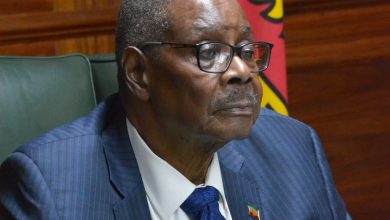MCP irks non-State entities on foreign aid
Malawi Congress Party (MCP) has stepped on raw nerves of civil society organisations (CSOs) over its proposal to ban foreign governments from channelling aid to agencies outside the government channels.
In its 2025-2030 manifesto, MCP further proposes publication of annual reports detailing foreign aid pledges and disbursement status to ensure that foreign aid is provided solely through government channels purportedly to respect the country’s sovereignty and democratic principles.

However, the proposal unveiled on Saturday has drawn criticism from CSOs and political analysts who argue that it threatens the independence of civil society and could undermine democratic accountability.
In an interview yesterday, human rights activist Benedicto Kondowe, who is also National Advocacy Platform executive director, condemned the move, stating that it would centralise all donor aid under State control.
He said direct funding from foreign governments is crucial for CSOs to hold the government accountable, reach marginalised populations and enable citizen participation without political interference.
Said Kondowe: “The clause signals bad faith. It smacks of an attempt to financially suffocate and discipline CSOs behind patriotic rhetoric. Forcing all aid through government invites politicisation, delays, and the silencing of dissent which strains constitutional rights to association and participation.”
He said Malawi already has oversight mechanisms, including foreign exchange regulations and Non-Governmental Organisations (NGO) Act that sufficiently monitor such resources.
Youth and Society (YAS) executive director Charles Kajoloweka, in a separate interview, condemned the proposal outright, calling it “blatant attempt to undermine civic space”.
He said: “The proposal in the MCP manifesto to ban funding for NGOs is not only delusional and simplistic, but also a blatant attempt to undermine civic space. This is a new weapon of choice for authoritarian regimes across the globe to undermine critical civic society by restricting funding from foreign sources.”
Centre for Social Accountability and Transparency executive director Willy Kambwandira said the broader implications of the proposal are that it may affect the independence of CSOs and lead to the suppression of dissenting views of CSOs.
Meanwhile, political commentators have also cautioned against the move, saying it would erode accountability and suppress dissent from CSOs.
Political analyst George Chaima described the proposal as a sign of oppression which could also discourage donors from supporting Malawi.
On his part, political analyst Wonderful Mkutche pointed out that foreign governments tend to prefer direct funding to CSOs because they distrust government transparency, further warning that such a policy could create hostility between the government and CSOs, potentially shrinking civic space further.
MCP spokesperson Jessie Kabwira, campaign director Moses Kunkuyu and secretary general Richard Chimwendo Banda could not be reached as their phones went unanswered.
MCP launched its manifesto at Bingu National Stadium in Lilongwe on Saturday where President Lazarus Chakwera pledged ambitious reforms, including the creation of three million jobs for the youth, the transformation of the National Economic Empowerment Fund into a development bank and the Tsogolo Account, which promises K500 000 savings for all children born in Malawi to be accessed upon turning 18 years of age.





